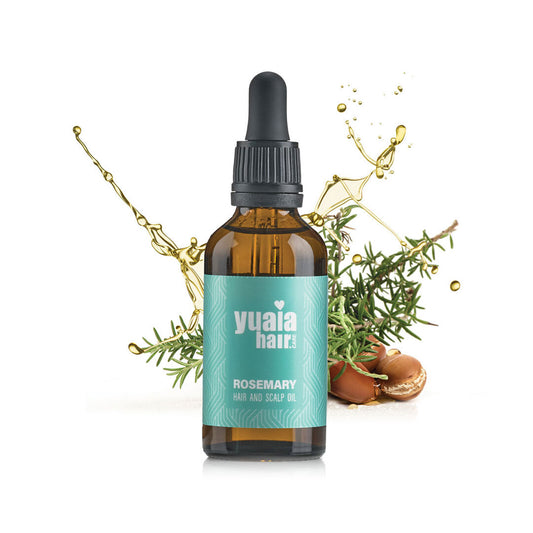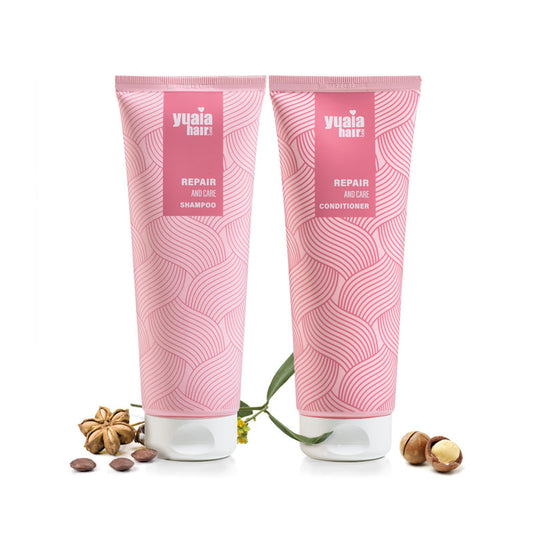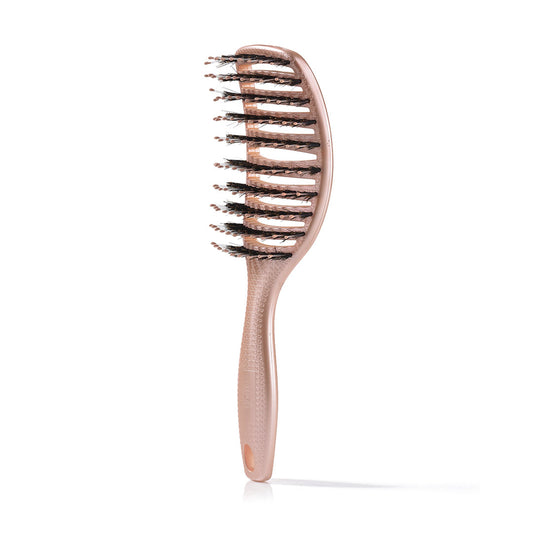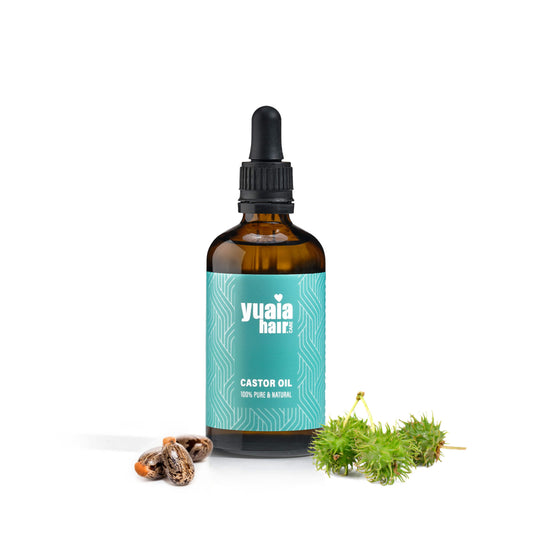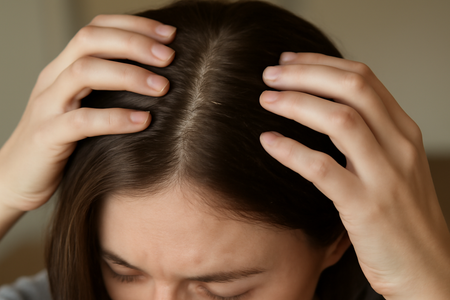
Visual and symptomatic differences
Understanding the visual and symptomatic differences between dandruff and dry scalp can help in identifying the correct condition. Dandruff, often linked to an oily scalp, presents with large, sticky flakes that are yellowish in color. These flakes tend to adhere to both the scalp and hair, contributing to a greasy appearance. This condition is frequently accompanied by itchiness and can sometimes extend beyond the scalp to areas like the eyebrows or face.
In contrast, dry scalp flakes are small, white, and powdery. They easily shed from the hair, often landing on shoulders. This condition arises from a lack of moisture rather than excess oil. The flakes are not sticky and tend to fall off without adhering to the scalp or hair.
Hybrid scenarios
There are instances where individuals experience a combination of symptoms, such as having oily hair with a flaky scalp. This can be due to imbalanced oil production or inappropriate product usage. In such cases, it's important to assess both the scalp's oil levels and the type of flakes present to determine the appropriate care routine.
Common misconceptions and myth-busting
A prevalent misconception is the term "dry dandruff," which often leads to confusion. Many people mistakenly identify dry flakes as dandruff when they are, in fact, a sign of a dry scalp. True dandruff is medically linked to an oily scalp and the presence of the yeast Malassezia, not dryness. Misdiagnosing these conditions can result in ineffective treatments and prolonged discomfort.
For example, using moisturizing products intended for a dry scalp on dandruff can exacerbate oiliness and yeast proliferation. Conversely, employing dandruff treatments on a dry scalp can strip away essential moisture, worsening the condition. Recognizing the accurate condition and selecting suitable products is crucial for effective treatment.
To aid in proper scalp care, consider using our rosemary hair oil for added moisture and nourishment. This product is designed to support scalp health and can be used to address dryness effectively.
Treatment approaches for dandruff and dry scalp
When addressing dandruff and dry scalp, it's important to tailor your approach based on the specific condition. For those dealing with dandruff, the focus should be on managing excess oil and controlling fungal growth. This often involves using antifungal agents found in specialized shampoos that target the proliferation of the yeast Malassezia. Regular washing with these products can help reduce oiliness and flaking.
On the other hand, if you're experiencing a dry scalp, the key is to restore moisture balance. Hydrating products, such as nourishing oils and moisturizing shampoos, can help soothe irritation and reduce flaking. At Yuaia Haircare, we offer a rosemary hair oil that provides additional moisture and nourishment to support scalp health.
Enhancing your haircare routine
In addition to using the right products, adjusting your haircare routine can further improve your scalp condition. Brushing techniques play a significant role in maintaining scalp health. Using a brush like the Curvy Brush can help distribute natural oils evenly across your scalp, reducing dryness and promoting a healthier scalp environment.
Furthermore, consider the frequency of washing your hair. Over-washing can strip the scalp of its natural oils, leading to dryness, while under-washing can allow oil buildup, exacerbating dandruff. Finding a balance that suits your scalp's needs is essential.
FAQs: Addressing common questions
How can I tell if my scalp is dry or oily?
To determine if your scalp is dry or oily, observe the characteristics of the flakes and the condition of your hair. Oily dandruff flakes are large, sticky, and yellowish, often accompanied by greasy hair. In contrast, dry scalp flakes are small, white, and powdery, with hair that may feel dry or brittle.
What products should I use for an oily dandruff condition?
For oily dandruff, use products that target excess oil and fungal growth. Look for shampoos with antifungal agents that can help manage the yeast Malassezia. Regular use of these products can reduce oiliness and control flaking.
Are there natural remedies for dry scalp?
Yes, natural remedies such as using nourishing oils can help alleviate dry scalp. Applying a few drops of rosemary oil or similar hydrating oils can provide moisture and soothe irritation. Additionally, using a gentle, moisturizing shampoo can help maintain the scalp's moisture balance.
 2-5 day delivery
2-5 day delivery
 25.000+ satisfied customers
25.000+ satisfied customers
 Satisfaction Guarantee
Satisfaction Guarantee



















